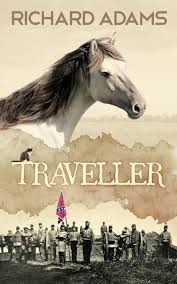 |
| Mary Louise Thomas |
She made me memorize long passages of
The Rime of the Ancient Mariner, by the poet Samuel Taylor Coleridge. My hang-up wasn't the poem or even memorizing it. I knew when I walked into Mrs. Thomas' English Class that I'd have to memorize some poetry.
What bothered me was there was only one way to prove I'd memorized the poem. Eventually I would have to stand up in class and recite it. It was my fear of the recitation that scared the hell out of me.
I would go to any lengths to avoid it. Now, after five years as a Toastmaster, eleven years as a professional speaker, and three years as co-minister of a church, I still remember the fear that gripped my heart, made my legs shake and my voice tremble the moment Mrs. Thomas called my name.
I also remember lying in a rice paddy, on the first day of Tet, 1968. I was within earshot of the fighting in Saigon when I remembered Mr. Jones, one of my high school teachers, saying, "Bert, one day you'll wish you were back here." As the battle for Saigon ebbed and flowed, and I figured I was about as close to dying as I had ever been, I still had no desire to be back in high school.
I laughed out loud when I realized the reason I'd rather be in that rice paddy than back in my old high school. It had nothing to do with death and everything to do with recitation. Lying in that thick, smelly, water I could easily think of a number of things that not only might happen to me that day, but were becoming more likely by the minute. However, one of them wasn't standing up and reciting anything, and for that I was not only grateful, I had reason to believe I had a decent chance of surviving the day.
That war ended, and I fought others. It seemed that would be my forever pattern, and it was until 1982, when I stood up in the middle of whatever rice paddy I was lying in at the time and shouted, "That's it! Call on me. I'll recite! If it kills me, fine, at least I'll die standing up trying."
Actually I wasn't in a rice paddy in 1982. I was in Memphis, Tennessee, when the desire to speak in public, which I'd harbored for forty years, called out the fear of speaking in public, which I'd also carried since the age of five. The battle between the two desires raged for a while, and it wasn't clear which would prevail.
The fight was waged in five Toastmaster Clubs I joined. Each one met on a different day, at a different place, so it was a rare day when I didn't have the opportunity to "recite." That war lasted for more than a year. Then, one day it just ended. The fear of speaking simply gave up and walked away. I looked down and saw my knees were't shaking. I listened and there was no quaver in my voice. I released my grip on the podium and didn't fall. and I heard...
At length we did cross an Albatross,
Through the fog it came;
As if it had been a Christian soul,
We hailed it in God's name.
Sometime later I remembered something else Mrs. Thomas had told us, "Find a poem you like, memorize it and be ready to share it with the class Monday."
That pretty much put the weekend down the drain, but I feared what would happen if I wasn't prepared more than what might happen if I was, so I found a short poem and I memorized it. I wasn't called on that Monday, or the next, or the next. But, I was ready to recite, and I still am.
I met a traveller from an antique land,
Who said - "Two vast and trunkless legs of stone
Stand in the desert... Near them, on the sand,
Half sunk a shattered visage lies, whose frown,
And wrinkled lip, and sneer of cold command,
Tell that its sculptor well those passions read
Which yet survive, stamped on these lifeless things,
The hand that mocked them, and the heart that fed;
And on the pedestal, these words appear:
My name is Ozymandias, King of Kings;
Look on my Works, ye Mighty, and despair!
Nothing beside remains. Round the decay
Of that colossal Wreck, boundless and bare
The lone and level sands stretch far away.
In my second year with Mrs. Thomas, she gave me an "A" for my essay, On the Devil, and a "B-" for The History of the Ku Klux Klan. I don't remember a single line from either of those essays. I remember the poetry, and when I think of Mary Louse Thomas I remember:
She walks in beauty, like the night
Of cloudless climes and starry skies;
And all that's best of dark and bright
Meet in her aspect and her eyes;
Thus mellowed to that tender light
Which heaven to gaudy day denies.
One shade the more, one ray the less,
Had half impaired the nameless grace
Which waves in every raven tress,
Or softly lightens o'er her face;
Where thoughts serenely sweet express,
How pure, how dear their dwelling-place.
And on that cheek, and o'er that brow,
So soft, so calm, yet eloquent,
The smiles that win, the tints that glow,
But tell of days in goodness spent,
A mind at peace with all below,
A heart whose love is innocent!
Mrs Thomas, you made me face my worst fear and without me realizing you'd done it, you gave me the inspiration to whip it. I'll be forever grateful for that. This one's for you:
The fountains mingle with the river
And the rivers with the ocean,
The winds of heaven mix for ever
With a sweet emotion;
Nothing in the world is single;
All things by a law divine
In one spirit meet and mingle.
Why not I with thine?-
See the mountains kiss high heaven
And the waves clasp one another;
No sister-flower would be forgiven
If it disdained its brother;
And the sunlight clasps the earth
And the moonbeams kiss the sea:
What is all this sweet work worth
If thou kiss not me?
























